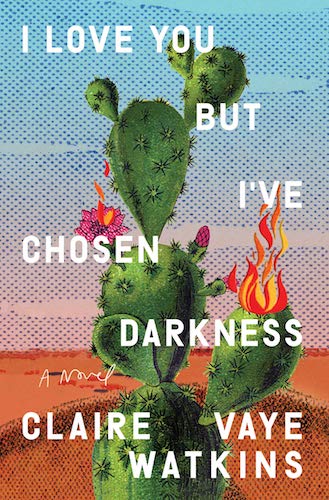
My mother’s career was a bit of a con. She didn’t graduate from high school and had no formal education in museum studies, yet she expanded the rock shop into the Shoshone Museum. She was a self-taught historian—meaning she read a lot—and learned photography in the basement darkrooms of the Strip. My father had taught her a little about mining and lapidary work, and she taught herself a lot more. She began to make her own jewelry and sell it at the museum and at gem shows. She was an artist, a naturalist, a writer, though she never used those words.
At some point she stopped taking pictures. I know she did not always love being a mother. She loved her garden and smoking and work. When she got home we were not to ask her any questions for an hour. She wanted, more than anything, to be left alone in her garden on unpaved Lola Lane, bordered by open desert and alfalfa fields. She cultivated the property with a technique known by the family euphemism “view it at night,” a specific subset of theft, typically the stealing of landscaping elements from a corporation by cover of darkness. She might say, “They just put century plants in in Summerlin. Perhaps we should view them at night,” and in no time we’d uproot a few ornamental agaves from the freshly landscaped median and take them home. She might back up her Bronco over a new curb and load it with baby date trees waiting to be plugged into the sod lawns of an unfinished subdivision. She might, with Ron’s help, roll expensive decorative boulders from the outer banks of the parking lot of a union-busting casino and into my dad’s old truck. She might persuade Ron to spend his weekend digging her a pond then stock it with lily pads and koi skimmed from a golf course water feature. In this manner the Lola property bloomed. Frogs moved into the pond with an elusive turtle we got from the fair and never saw again, only heard plopping himself into the water when we opened the front door first thing in the morning.
Other wonders appeared. A bench swing in a grove of screwbean mesquite, their curly-fry seedpods falling silently into a bed of mint. A fence, a deck, a patio off the master bedroom shaded by climbingroses. Dogs from the pound to keep Spike company: a Rottweiler we named Vash after Captain Picard’s girlfriend and a lunkhead golden retriever I got to name Oberon because I was just back from Shakespeare camp and Mom had missed me.
One day, driving on the ribbon of highway between Tecopa and Shoshone, we passed a house that Mom knew to be vacant. We stopped to take a look. Behind the house we saw a pen, and in it two donkeys, one iconic brown with a black cross of Bethlehem on its back and a bristly Mohawk mane, the other entirely white, an albino.
I didn’t even notice the animals’ ribs or the empty trough turned over in their pen, but as we drove away, Lise began to howl. She didn’t stop until Mom borrowed her sponsor’s horse trailer and we took the donkeys home. Around this time and in a similar manner our household came into a gigantic potbellied pig. Lise named him Wilburr and almost as quickly came home from school to find him killed and partly eaten by Vash. It was not Vash’s fault, Mom said. She was made that way.
The donkeys fared better than Wilbur. Ron built them a corral and we fed them sheafs of alfalfa from the farm at the end of the road. Not long after their arrival Lise and I took the brown one—mine, Buckwheat—out into the desert for a ride, playing Mormons. Her donkey, the albino, was skittish and mistrustful and would not tolerate mounting. As we circled back, a strange sound echoed into Deseret, a keening. The white donkey, braying for her brother. The moment she caught sight of him, she tried to jump the corral. But she was tired, malnourished, afraid. We could see all this in her eyes as she writhed on the corral, stuck, her hooves screeching on the iron bars and sending up sparks. That’s how Spark got her name.
You must remember that this was real. Real hooves, real sparks.
Mom and Ron got married in the garden of the Lola house on Super Bowl Sunday. They served sub sandwiches from the Blimpie inside Terrible’s Town. The men watched the game during the reception. Lise and I jumped on the trampoline with our cousin Darren, sailing high over the garden, our sunflowers, ice plant, water lilies, roses, much of it viewed at night, though some of Mom’s acquisitions had occurred in broad daylight. I leapt into the air, spying on my mother in her garden. Her shoulders were wrapped in creamy lace—a curtain she’d transformed for the day into a gauzy shawl—and her hair shone in the sun like some new metal. She was surrounded by women she loved and who loved her. She was holding her baby. When the vows came she had assented to every word save one.
Obey.
_________________________________________________________
Excerpted from I Love You But I’ve Chosen Darkness by Claire Vaye Watkins. Copyright (c) 2021 by Claire Vaye Watkins. Reprinted with permission from Riverhead Books.


